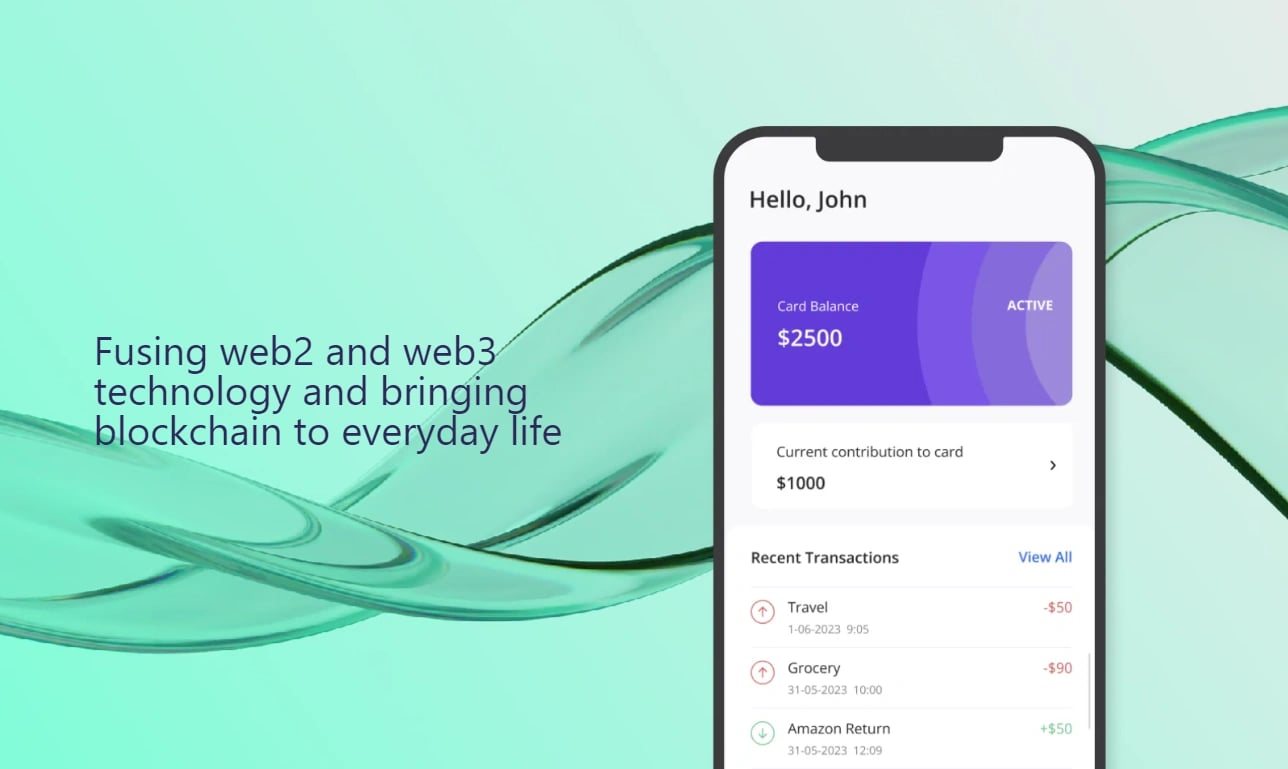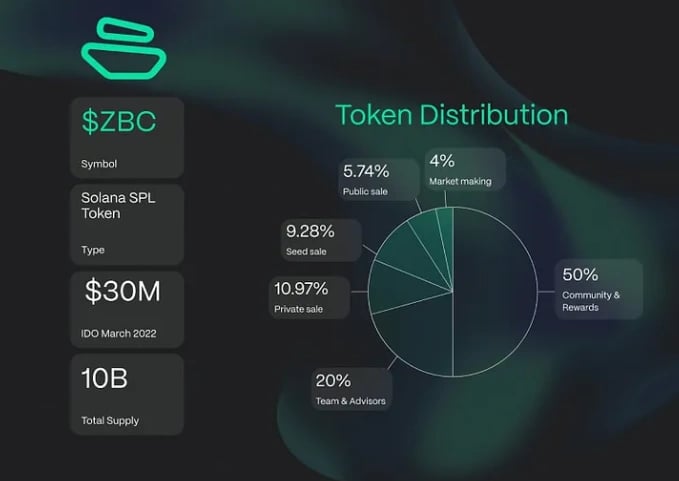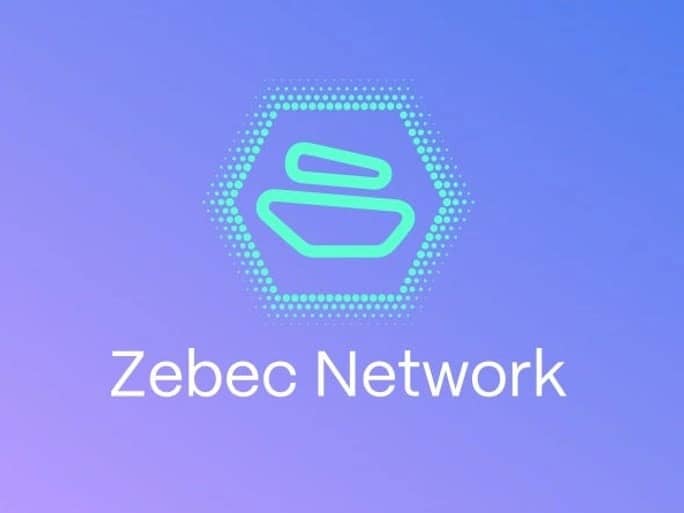위키 구독하기
Share wiki
Bookmark
Zebec Network
0%
Zebec Network
Zebec Network는 ZBCN 암호화폐로 구동되는 블록체인입니다. 이는 실제 가치의 흐름을 촉진하는 분산형 인프라 네트워크로 운영되며 기존 경제와 디지털 경제 모두를 위한 블록체인 기반 애플리케이션을 제공합니다. Zebec은 2021년 Sam Thapaliya에 의해 출시되었습니다. [1]
개요
원래 Solana 블록체인에서 지속적인 결제 프로토콜로 출시된 Zebec은 기술 범위를 확장했습니다. 이제 다양한 프로토콜을 포함하고 다양한 블록체인 지원 실물 자산(RWA) 결제 및 급여 제품을 통합되고 상호 운용 가능한 네트워크에 통합합니다.[1]
이러한 발전을 달성하기 위해 Zebec은 투자 부문인 Payroll Growth Partners(PGP)를 통해 기존 급여 서비스 회사에 투자를 유도합니다. 이 노력에는 Circle 및 Stellar와 같은 주요 금융 플랫폼과의 직접적인 통합 및 협업이 포함됩니다. 이러한 파트너십을 통해 Zebec은 WageLink 애플리케이션을 통해 거의 제로 비용의 국경 간 송금 및 USDC 급여와 같은 기능을 용이하게 합니다. WageLink는 또한 통합 플랫폼 내에서 조기 급여 액세스, 예산 책정 도구, 청구서 지불 및 급여 카드를 포함한 고급 급여 기능을 제공합니다.[1]
제품
Zebec 카드
2023년 말에 Zebec은 업계 최초의 수탁 요건 및 거래 수수료가 없는 멀티체인 카드로 인정받는 Zebec Instant Card를 출시했습니다. 138개국에서 사용할 수 있고 Visa 및 Mastercard와 같은 글로벌 네트워크에서 지원되는 이 카드를 통해 사용자는 암호화폐를 일상적인 구매에 선호하는 법정 화폐로 변환할 수 있습니다. 카드 활성화는 몇 초가 걸리며 Mastercard에서 지원하는 카드는 즉시 온라인 또는 매장 내 사용을 위해 Apple Pay 또는 Google Pay에 원활하게 통합할 수 있습니다. [2]
RWA 결제
WageLink 급여 애플리케이션은 저렴한 국경 간 송금 및 USDC 급여 서비스를 포함한 web3 기능을 통합합니다. 또한 통합 애플리케이션 인터페이스를 통해 액세스할 수 있는 조기 급여 액세스, 예산 책정 도구, 청구서 지불 기능 및 급여 카드와 같은 고급 급여 기능도 제공합니다. [3]

Nautilus 체인
2023년에 출시된 Nautilus는 Zebec의 글로벌 실물 자산(RWA) 결제 및 DePin 인프라를 용이하게 하도록 특별히 설계된 고성능의 적응 가능한 L3 블록체인으로 설계되었습니다. Nautilus는 또한 분산형 금융(DeFi), 결제 시스템, 게임 등과 같이 높은 성능과 보안이 필요한 다양한 프로젝트 및 분산형 애플리케이션(dApp)을 수용합니다. [4]
Zebec 볼트
Zebec 볼트는 고객에게 다양한 보안 조치를 제공합니다.
- 자금은 고도로 안전한 다중 서명 지갑에 보관됩니다. 자신의 지갑에 액세스하려면 여러 장치에 분산된 여러 서명 또는 키를 얻어야 합니다. 기존 은행 계좌의 일반적인 단일 서명 또는 칩 앤 핀 코드와 달리 이러한 계층화된 보안 접근 방식은 무단 액세스에 대한 기준을 크게 높입니다. 다중 서명 보안을 통해 지갑은 은행 금고와 더 유사하게 작동하여 액세스하려면 여러 키 소유자와 키가 필요합니다.
- 스마트 계약 활용. 당사자 간의 관계는 스마트 계약을 통해 촉진되어 (예: 고용주와 직원 간) 상호 작용을 자동화하고 신뢰성과 진실성을 유지하면서 중개자를 제거합니다.
- 자금 보안 보장. Zebec은 주요 블록체인 보안 회사(CertiK, Trail of Bits 및 Bramah Systems)의 감사를 받고 미국 내에서 완전히 규정을 준수하며 스트리밍 금융 부문에서 최고 수준의 보안 및 규정 준수를 유지하기 위해 국제 규제 기관과의 지속적인 협력을 약속합니다. Zebec에서는 전담 팀이 고객의 보호를 위해 24시간 내내 노력하고 의심스러운 활동을 즉시 식별하여 자금을 안전하게 유지합니다. [6]
ZBCN 토큰노믹스
2022년에 출시된 $ZBC 토큰은 Zebec 생태계 내에서 거버넌스 토큰 역할을 하며 다양한 인센티브와 네트워크 수수료 감소를 통해 유틸리티를 제공합니다. Zebec의 DAO와 커뮤니티는 거버넌스에 참여하여 프로토콜의 방향과 운영 개선에 영향을 미칩니다.[8]

거버넌스
Zebec은 온체인 및 오프체인 의사 결정 프로세스를 결합한 하이브리드 거버넌스 프레임워크에서 운영됩니다. 커뮤니티 구성원과 투자자는 토론에 참여하고 제안은 온체인 투표 단계로 진행됩니다. 거버넌스 프로세스는 투명성과 포용성을 강조합니다.[8]
거버넌스 절차 및 투표 프로세스는 다음과 같이 진행됩니다. 커뮤니티 구성원은 Zebec 플랫폼에서 아이디어를 제안하여 토론을 시작하고 투자자와 파트너도 고려할 제안을 제공합니다. 브리핑, 토론 및 협의와 같은 오프체인 활동은 Zebec의 커뮤니케이션 채널 및 커뮤니티 포럼을 통해 배포되는 기사 및 보고서로 통합됩니다. 투자자 및 영향력 있는 ZBC 보유자와의 협의에 따라 상당한 참여를 얻은 제안은 투표 단계로 진행됩니다. DAO는 이러한 투표를 온체인에서 수행하고 결과는 이후 공개되어 더 넓은 커뮤니티에 전달됩니다.[8]
자금 조달
2021년 11월 Zebec은 Republic Capital이 주도하고 여러 주요 투자자가 참여한 시드 라운드에서 600만 달러를 모금했습니다. 이 자금은 Solana 블록체인에서 Zebec의 지속적인 결제 프로토콜을 개발하고 초기 시장 진입을 목표로 했습니다.[9]
2022년 1월 Zebec은 Solana Ventures와 Distributed Global이 주도하고 Alameda Research, Circle, Coinbase, GoldenTree Asset Management 및 Lightspeed Venture Partners와 같은 투자자의 주목할 만한 참여로 시리즈 A 라운드에서 추가로 1,500만 달러를 모금했습니다. 이 라운드는 Zebec 플랫폼을 확장하고 급여 및 결제 서비스를 개선하며 사용자 기반과 시장 입지를 확대하는 것을 목표로 했습니다.[7]
2023년 Zebec은 ZBC 토큰의 공개 및 비공개 판매를 통해 2,800만 달러를 모금했습니다. 비공개 판매는 2,100만 달러를 모금했고 이후 공개 판매에서 700만 달러가 추가되었습니다. 이 자금은 자체 L3 체인인 Nautilus Chain 출시와 DePin 인프라 확장을 포함하여 Zebec 생태계를 더욱 개발하는 데 중점을 두었습니다.[9]
잘못된 내용이 있나요?
